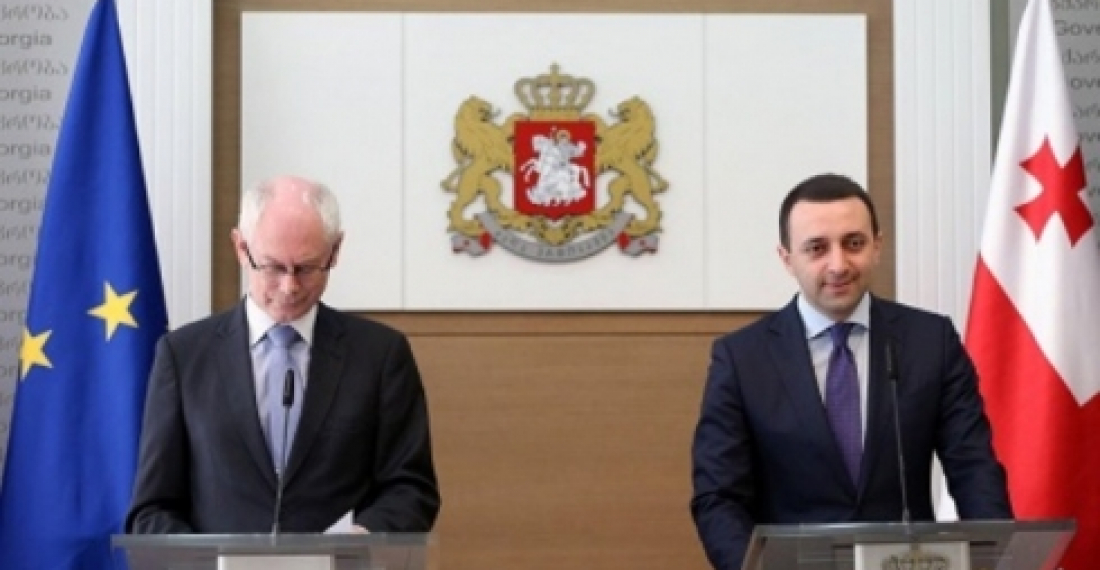Georgia and the European Union will sign the Association Agreement between them on 27 June. The date of this important milestone in EU-Georgia relations was announced during the visit of European Council President Herman Van Rompuy to Tbilisi.
Van Rompuy arrived in the Georgian capital after short visits to Ukraine and Moldova, as the European Union continues to reaffirm its determination to stand by those countries that have expressed a wish for close relations with it, often in defiance of Russian pressure.
Speaking in Tbilisi following talks with Georgian Prime Minister Irakli Garibashvili, the President of the European Council said,
At top of our agenda today was the strengthening of relations between Georgia and the European Union. We discussed preparations for the signature and implementation of the Association Agreement including the Deep and Comprehensive Free Trade Area. We will sign the agreement in Brussels on the 27th of June together with all the EU heads of state or government. This important milestone will mark the beginning of a new phase in our relations and in the history of your country.
By choosing this path, Georgia is signalling its commitment to strong democratic institutions, respect for the rights of its citizens, and firmly upholding the rule of law. I assured the President and Prime Minister that the European Union will stand firmly by Georgia’s side as we embark upon this path together. Georgia is a free, democratic country that should make its own choices. No external pressure must change this.
Van Rompuy restated firm EU committments to Georgian independence and territorial integrity:
We also discussed the troubling regional situation and the implications for Georgia’s security. I confirmed again the European Union’s support for Georgia’s ter ritorial integrity within its internationally recognised borders, and our commitment to conflict resolution efforts in Georgia, including through the EU’s co-chairmanship of the Geneva International Talks and through the EU Monitoring Mission in Georgia. The EU remains very concerned by obstacles to free movement across the Administrative Boundary Line. This has a direct and negative impact on the lives of local people.
In Tbilisi, the President of the European Council also made reference to the situation in Ukraine:
Two days ago I was in Kiev and met with Prime Minister Yatsenyuk and President Turchynov. In Kiev I reiterated the European Union’s firm commitment to Ukraine’s unity, sovereignty, independence and territorial integrity. After the illegal annexation of Crime a and Sevastopol, the European Union has introduced sanctions against a number of individuals and entities. In case of further destabilisation, the European Union remains committed to further increase the cost for Russia should it take more steps to destabilise t he situation. For now the immediate goal is to ensure free and fair presidential elections on the 25th of May. The European Union will continue to insist on and work for dialogue and negotiations as this is the only way forward to come to a stable, democratic, inclusive and modern Ukraine. And we will continue our support for the necessary political, economi c and security reforms in Ukraine.
source: commonspace.eu with the Press and Information Service of the European Union
Photo: European Council President Herman Van Rompuy with Georgian Prime Minister Irakli Garibashvili in Tbilisi on 14 May 2014.







